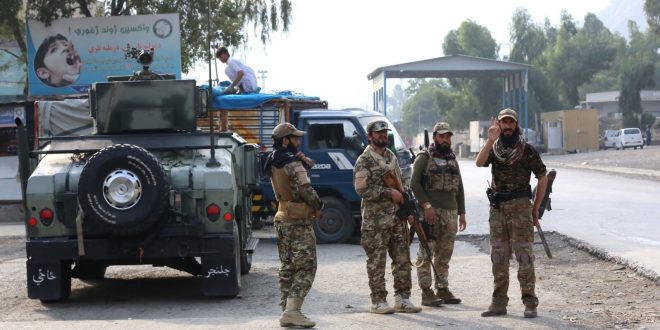KABUL – Afghanistan’s Taliban has apprehended 200 individuals suspected of involvement in cross-border attacks against Pakistan, with a particular focus on neutralizing the Tehrik-i-Taliban Pakistan (TTP). These actions were disclosed during recent bilateral talks held in Kabul between the Afghan authorities and a high-level delegation from Pakistan, coming in the wake of a TTP-led assault on Pakistani security posts in Chitral.
The attack on September 6th, which left four soldiers and 12 assailants dead, was claimed by the TTP. Subsequently, the Taliban took action, arresting 200 TTP members believed to be associated with the Chitral attack. These individuals are now in custody, according to an anonymous official. Additionally, Afghan authorities are in the process of relocating other TTP members away from the Pakistan-Afghanistan border. It is important to note that the outcomes of these measures are pending, and observers are urged to allow time for their consolidation.
Notably, the Taliban reiterated their commitment to not allow anyone to use Afghan territory for hostile actions against Pakistan. This statement aligns with Afghanistan’s national interest in promoting peace and reconciliation. The Taliban emphasized that while they can provide assistance to Pakistan with its internal security concerns to the extent of their capacity, border security remains the responsibility of Pakistan.
Pakistan’s delegation to Kabul, led by Asif Durrani, included senior military officials and engaged in extensive discussions with Taliban Foreign Minister Amir Khan Muttaqi and his team. While there are concerns about groups like the TTP operating in Afghanistan, Pakistani officials refrain from drawing hasty conclusions about the Taliban’s intentions, emphasizing the need to avoid complicating the relationship.
The TTP, also known as the Pakistani Taliban, has been designated a global terrorist organization by Pakistan, the United States, and the United Nations. It emerged in Pakistan’s border regions in 2007 and had previously pledged allegiance to the Afghan Taliban leadership, supporting them in insurgent attacks on U.S.-led NATO troops in Afghanistan.
Crucially, the Taliban’s supreme leader, Hibatullah Akhundzada, has explicitly prohibited cross-border attacks against Pakistan, declaring them un-Islamic. He has also forbidden Afghans from collaborating with or donating to the TTP for its activities against Pakistan and has barred the TTP from conducting fundraising campaigns in Afghanistan.
These developments signal a concerted effort by the Taliban to address security concerns and foster stability in the region, particularly in relation to Pakistan and groups like the TTP operating on Afghan soil.
 Afghanistan Times
Afghanistan Times




